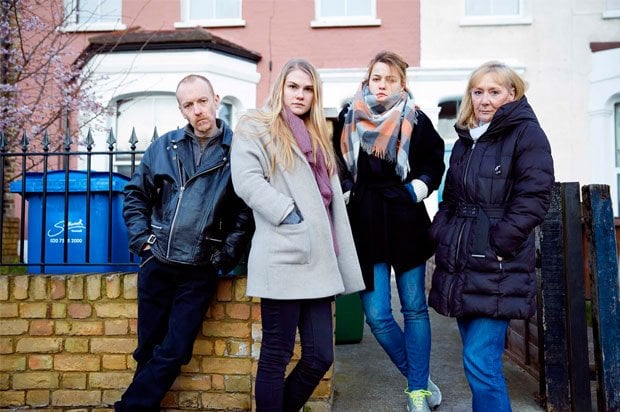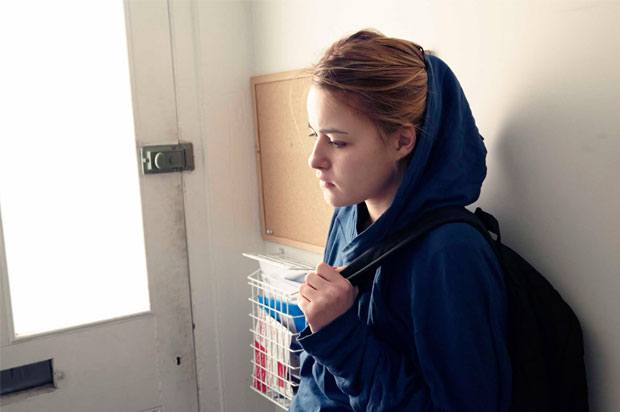I’m losing my family home
What if you’re not so much flying the nest as losing it? The Mix finds out what to do when your family has been made homeless.

Now where do we go?
Living at home
Thanks to rising rents and unemployment, a record number of young people are living back home with their parents – or they’ve never left. According to Office of National Statistics, almost a half of young people live at home.
But what if you can’t stay in your family home? For some people, it’s just not possible. Maybe you’ve fallen out with your family, or you’re in danger of losing your house. Here are some of the situations that might affect you.
My parents can’t pay the mortgage
If your parents are having money worries and they’re struggling to pay the mortgage it doesn’t automatically mean they’ll lose the house. They could get help from sources like the Mortgage Rescue Scheme, or negotiate with the lender.
A lender will only use repossession as a last resort, but if it has got to that stage it could go to court to get an eviction order. You should get at least four weeks’ notice about this and the court should ask for your family’s side of things, for example, if you think things will improve or you want to try to sell the house yourselves.
Get advice first though. If your parents are selling the house themselves, the council could say you’re all choosing to become homeless.
If an eviction order is granted, you won’t be evicted that day. For advice on the whole process, speak to Shelter or National Debtline – the sooner you get advice, the better.
One of my parents has died
It’s pretty devastating if you lose your home, as well as your parent. Staying in your house will depend on lots of factors, like whether your parent made a will, what kind of tenancy they had if it’s rented, and your remaining family’s current financial situation.
Another family member might be able to inherit the tenancy. You could be liable for the bedroom tax if you’re under-occupying, but this is delayed for a year when someone dies, so you’ll have a grace period to get something sorted.
I’ve fallen out with my family
If you’ve left your home because of a family argument the first thing to do is cool off. “When an argument happens and things become heated, people may think they have to find a permanent alternative,” says Amy Davies, National Housing Advisor for YMCA England.
“Sometimes time away from home at a ‘nightstop’ service or similar, and/or mediation, can allow things to be healed. At the very least, it can provide time out so an alternative can be found.”
Storming out means you’ve chosen to leave, but the council has to house you if you’re under 18, or you’re under 21 and have been in local authority care at some point following your 16th birthday – in which case you’re seen as unintentionally homeless.
You’re also unintentionally homeless if you’ve left because of violence, abuse or threats. While you should approach your local authority for help, Amy says it’s also a good idea to find a friendly ear, such as a helpline or charity worker, so you can talk about how you feel as well as the practical side of things.
My parents have downsized
Maybe your parents have moved to a smaller house because of the bedroom tax, or they just wanted a smaller place. You’re not choosing to become homeless if there isn’t anywhere to sleep, so your local council should help you find accommodation.
If you just don’t like your new bedroom because it’s too small, however, that doesn’t mean you’re being made homeless – even if it really sucks.
They’re moving abroad
You might not be classed as homeless if you have a suitable home to live in somewhere in the world. It doesn’t have to be in the UK.
However, it might not be reasonable to move abroad if it means disrupting your education, leaving your job, or living somewhere unsuitable or unsafe.
Can we stay together?
You’re seen as legally homeless if you don’t have anywhere suitable to live with your family or people you normally live with – a suitable home is one where you can stay together.
In reality, a shortage of emergency accommodation might mean you’re split up at first. But this isn’t a permanent solution.
In some parts of the UK, you have to show that you have a priority need to be classed as homeless (this doesn’t apply in Scotland). This includes households where at least one person is 16 or 17 years old, or 18 and in full-time education.
If that’s the case, your entire household should be classed as having a priority need, not just the person in that age group.
Next Steps
- Crisis helps single homeless people find somewhere to stay. Get help here
- Shelter offers advice on all housing issues. Get advice here or by calling their housing helpline 0808 800 4444. If you're in Scotland, use http://scotland.shelter.org.uk/
- Chat about this subject on our Discussion Boards.
By Anne Wollenberg
Updated on 29-Sep-2015
No featured article














